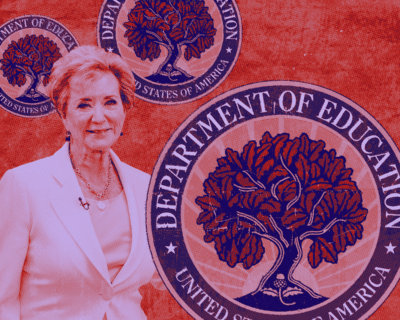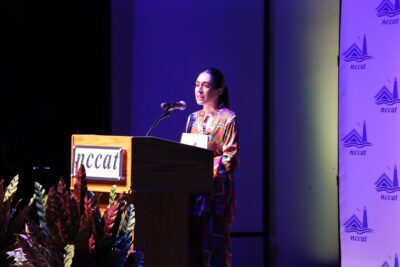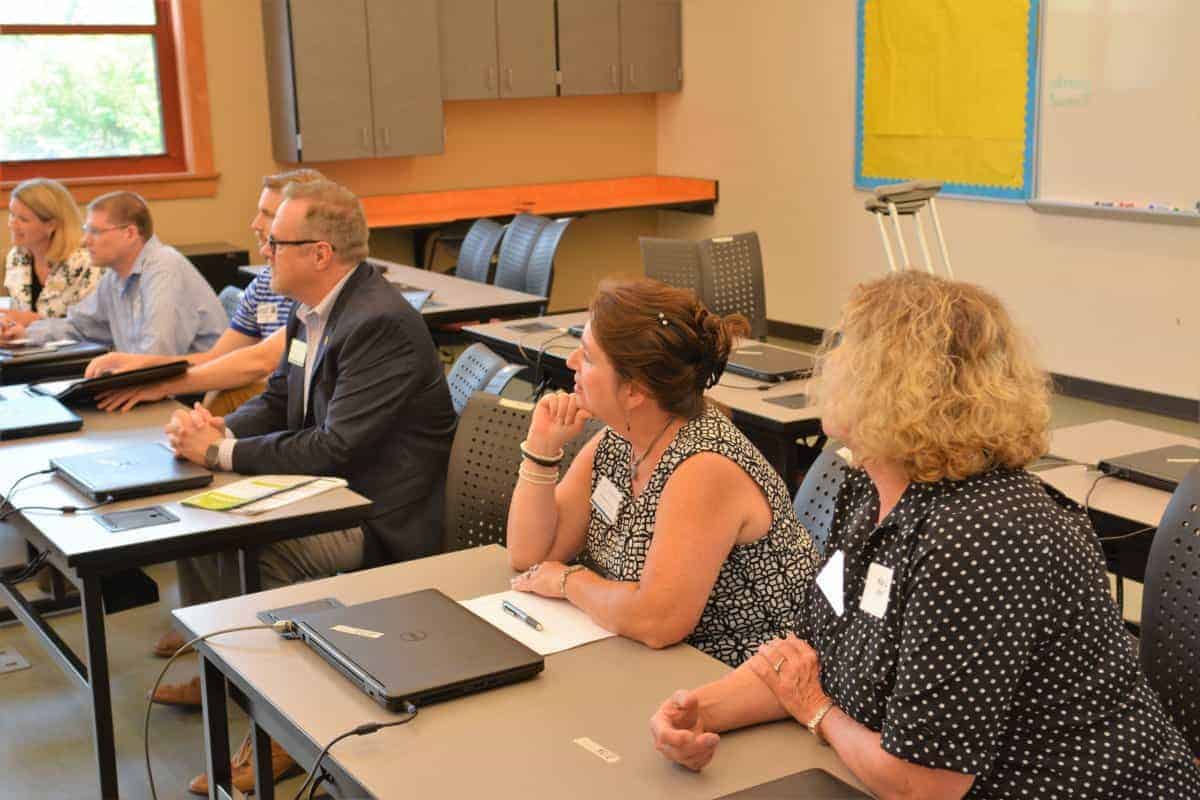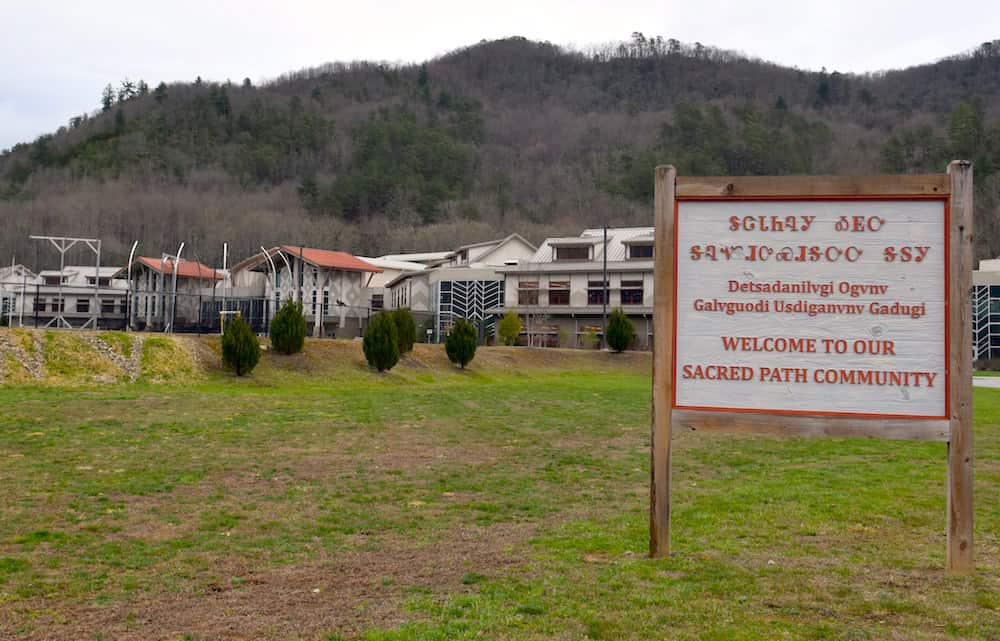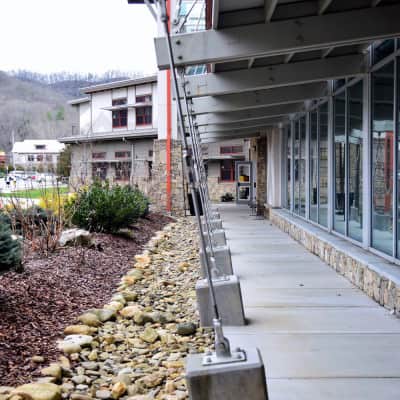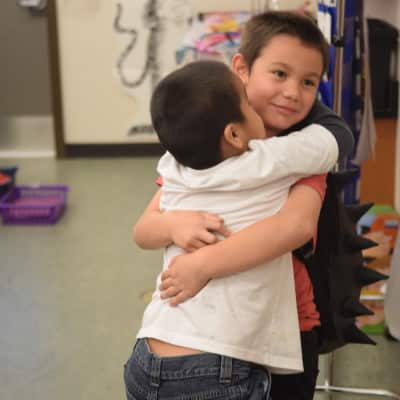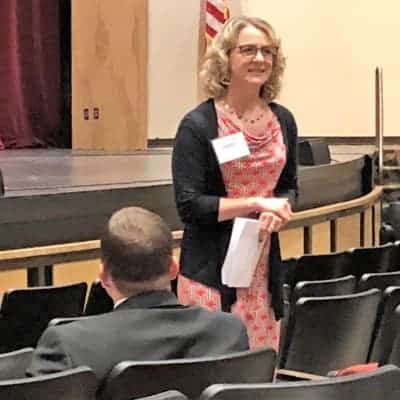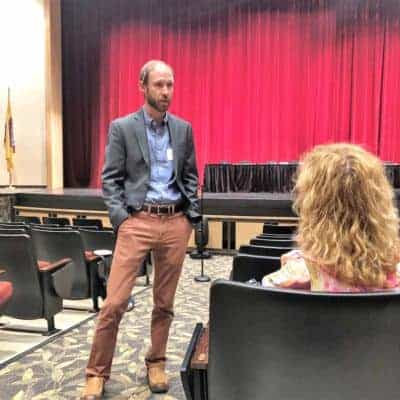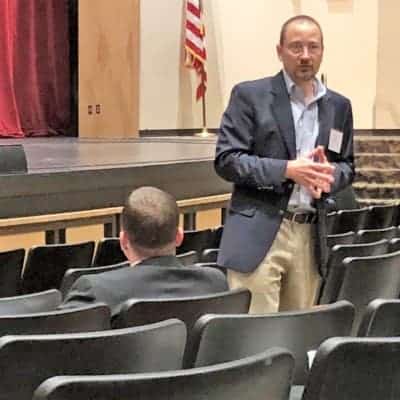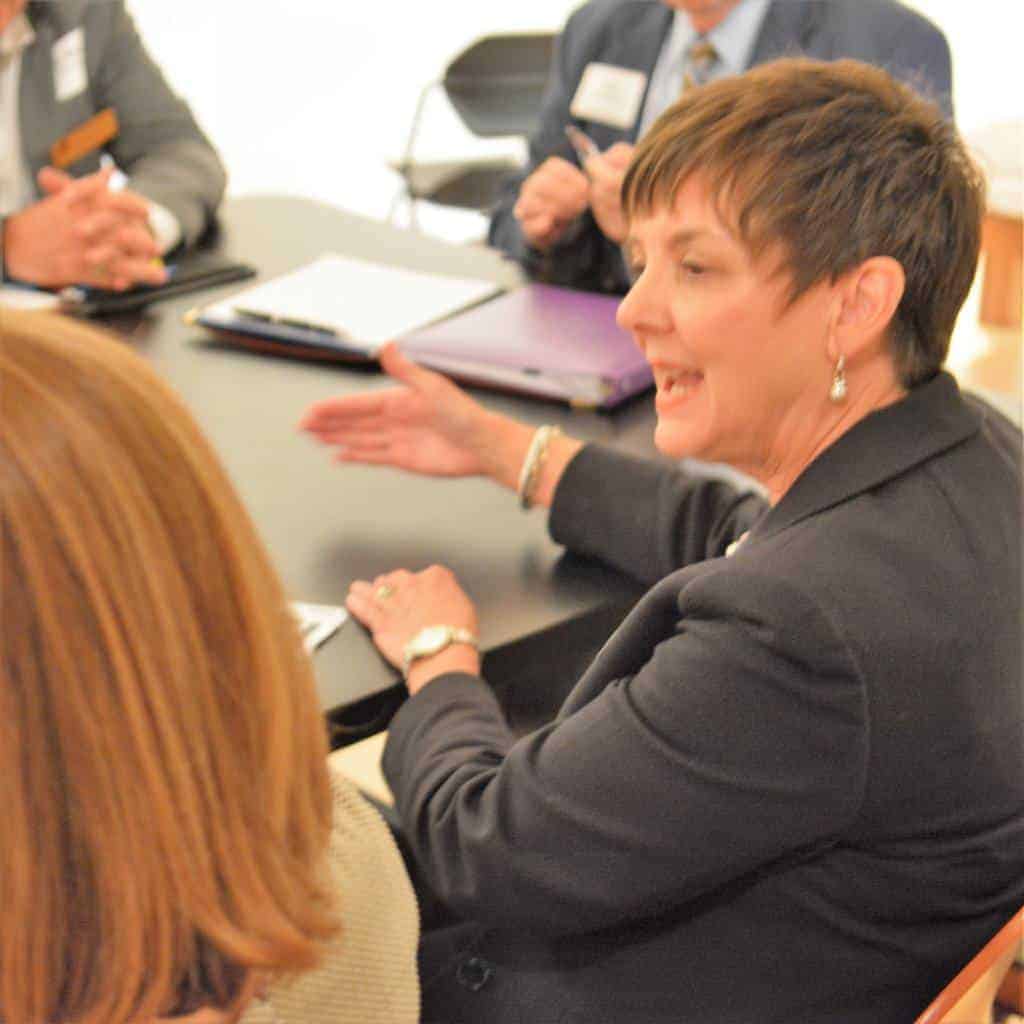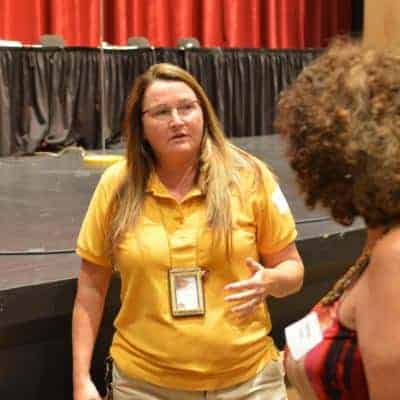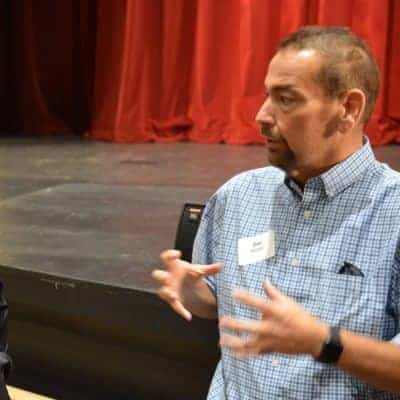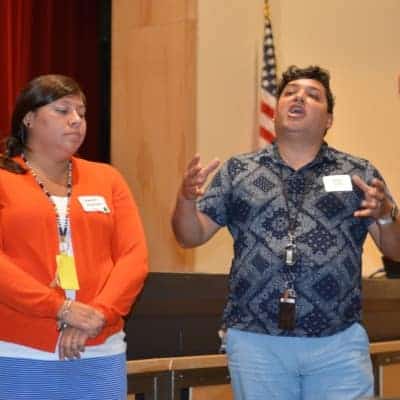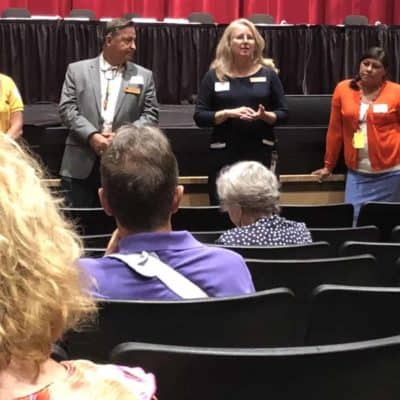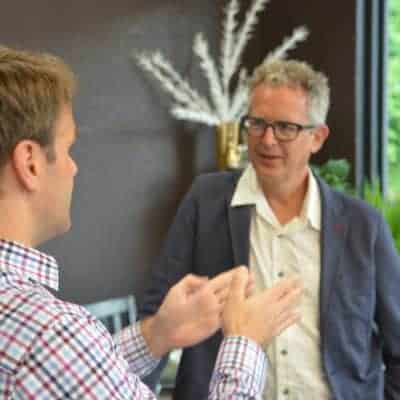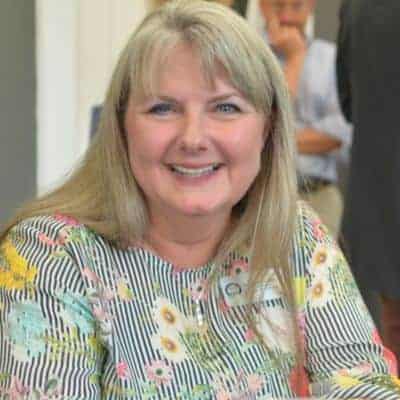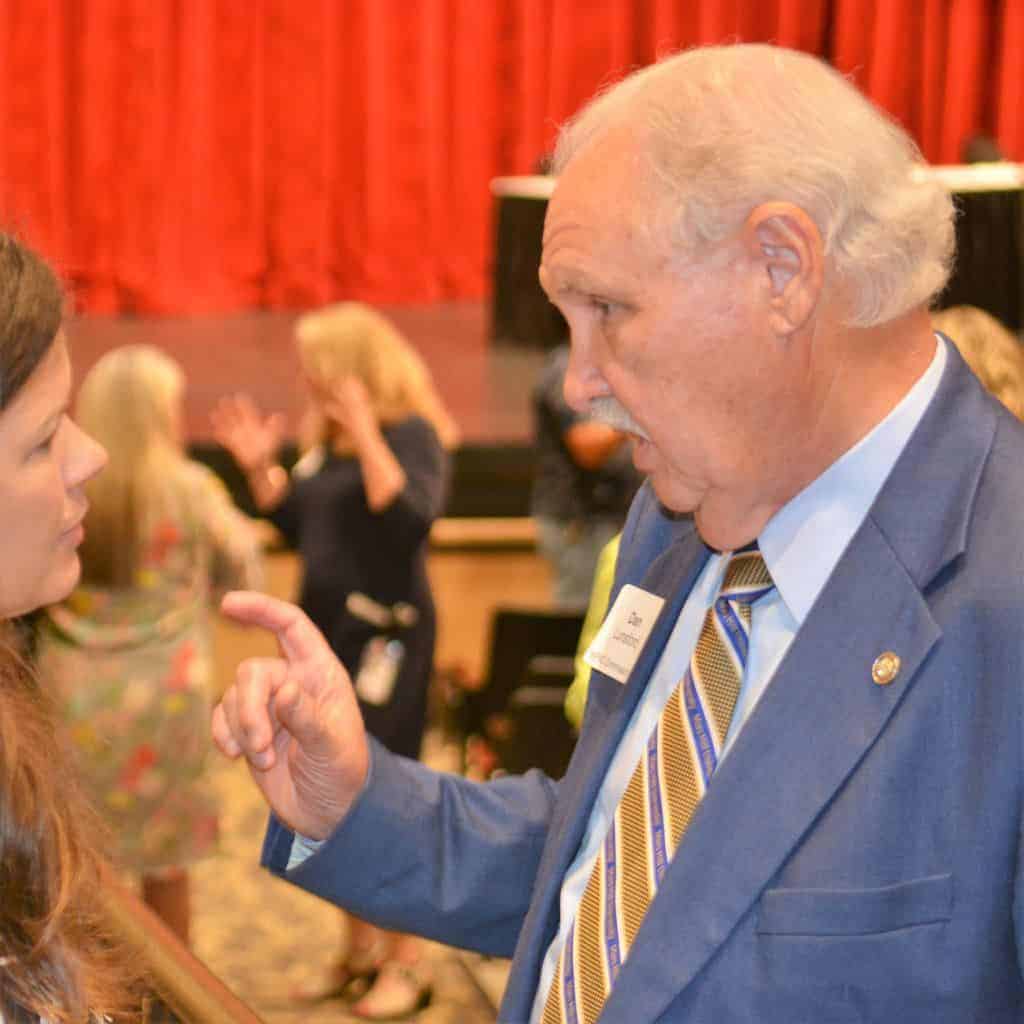On Wednesday, July 12, 2018, myFutureNC — a statewide commission focused on educational attainment — continued its listening sessions across North Carolina with a stop at Cherokee Central School on the Qualla Boundary, also known as the Cherokee Indian Reservation, in Swain County.
Kristy Teskey, the executive director of myFutureNC, kicked off the session with an overview of the commission and the need for a statewide attainment goal. North Carolina is one of just five states nationally without one. “This initiative will only work,” said Teskey, “when all voices are heard.” In reaching the goal, she urged the consideration of “all options that move people to family-supporting wages and jobs.”
Four superintendents attended the listening session, including Dr. Mike Murray, Cherokee Central School; Dr. Kim Elliott, Jackson County Public Schools; Mark Sale, Swain County Schools; and Dr. Jeff McDaris, Transylvania County Schools.
Key takeaways emerge from focus groups
Focus groups held at the listening sessions give those who attend the opportunity to talk about the issues in a smaller setting. Dr. Trip Stallings, the director of policy research for the Friday Institute for Educational Innovation at N.C. State University, notes that in this listening session new issues were brought to the attention of myFutureNC.
His three highlights from these focus groups:
“The gap is set by kindergarten, and we have a hard time shrinking it from that point forward. We constantly hear about how important it is to get things ‘right-er’ between birth and K.”
“[W]e need to differentiate the way we work with students, but we should not be fooled into thinking that differentiation is the same as a full intervention. It’s a start, but it’s not the whole picture.”
“If we are going to teach these kids anything, we need to teach them resilience. We need to teach them how to survive the slings and arrows of nonacademic fortune that keep them from making their academic goals.”
Across the listening sessions across the state, Stallings said more non-instructional support in schools including guidance counselors, career counselors, and parent counselors have been recommended, noting the importance “for the kids to learn how to become those parents for the next generation of students.”
The native perspective on educational attainment
The following community leaders then served on a panel about educational attainment, from left to right, with Stallings moderating: Dan Martin, program officer, Cherokee Preservation Foundation; Joel Creasman, principal, Cherokee Central Middle School; Dr. Deb Foerst, principal, Cherokee Central High School; Dr. Mike Murray, superintendent, Cherokee Central School; Dr. Beverly Payne, assistant superintendent, Cherokee Central School; Jennifer Martens, instructional coach, Cherokee Central Elementary School; and Yona Wade, director of community affairs, Cherokee Central School. Juanita Wilson, director of talent development of the Eastern Band of Cherokee Indians, is not pictured.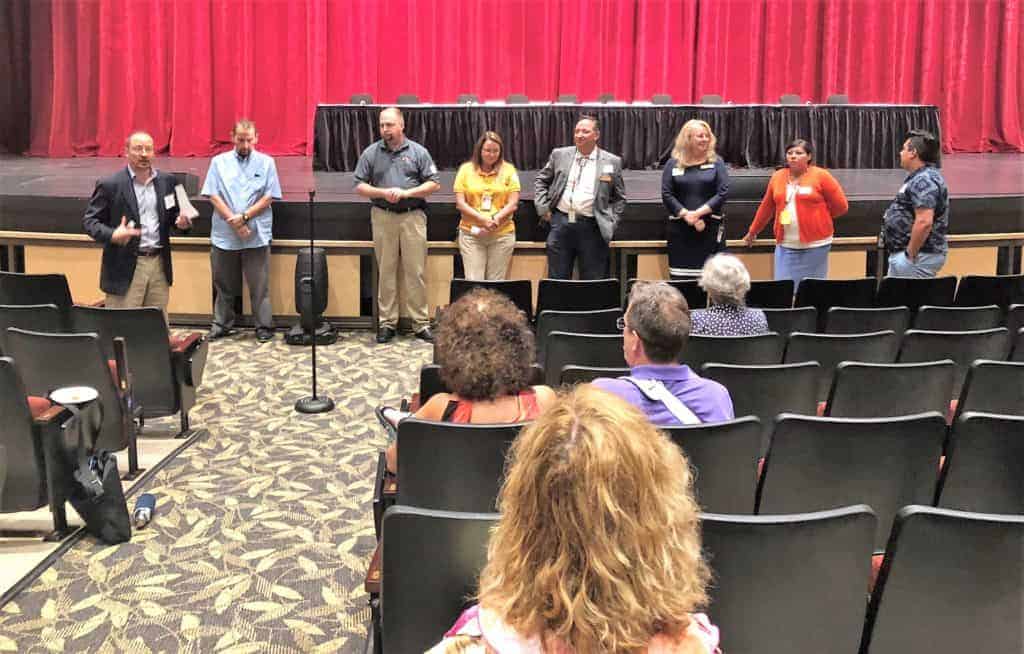
Much of the discussion centered on the “QEC,” the Qualla Education Collaborative. It started as a “dream” in March 2015, according to Wilson, but since then “the QEC laid the foundation for what is possible,” providing a voice and a vision for educating students. The QEC exists to support students from cradle to career, she said. Wade, noting the importance of community support, said, “We are not rolling out anything that everyone isn’t buying into.”
“We are mountain folk,” said Murray, the superintendent of Cherokee Central School. “We care about mountain children.”
Stallings asked what could be learned from the experience of the QEC. Wade said, “Any community has the ability to pull stakeholders together — and that does not require additional funds.”
The strength of the region extends beyond the QEC
“We can work together,” said Superintendent Murray, “and collaborate and have a stronger system than in Raleigh.” One example lifted up by Superintendents Murray and Elliott was CREW, the Collaborative Regional Educational Workshop. This year CREW will happen on October 4, 2018, on the campus of Cherokee Central School. Here is more information:
CREW is a collaborative, professional development event for all instructional leaders, teachers, and staff from the eight western-most public school systems in NC (Clay, Cherokee Central, Cherokee County, Graham, Haywood, Jackson, Macon, Swain). Representatives from each district and higher education partners (Western Carolina University, Southwestern Community College) work together monthly to organize this exciting, unique opportunity.
The overall mission of CREW is to provide the best educational experience for students in Western NC by providing quality professional development for teachers and educational leaders. There are two main goals: first, participants will work together with educators from other districts in job-alike and/or subject area groups to share best practices, discuss opportunities for improvement, and create regional Professional Learning Communities (PLCs) to facilitate ongoing collaboration and communication; second, educators will participate in their choice of three different concurrent sessions on relevant educational topics in many different instructional and content areas.
CREW 2018 will be the fifth consecutive regional professional development opportunity. Feedback from previous events was overwhelmingly positive. Superintendents and other educational leaders recognize the benefits of teachers working together for the betterment of instructional practices and fully support an annual CREW event. In 2014, approximately 500 teachers and educational stakeholders attended. In 2015 and subsequent years, the number of participants has grown to over 1,000 educational professionals from all grade levels.
https://www.youtube.com/watch?v=wDY7IZ7Gkes&feature=youtu.be&app=desktop
Elliott said of local professional development provided by local professionals, “We don’t have to call in the experts. We have the experts. It’s pretty empowering.”
Grounding the conversation at Grounded
EdNC held office hours at a local coffee shop called Grounded after the listening session to hear from folks who couldn’t attend because of work. At the listening session, Stallings said, “You all know better than anybody how different the issues are place to place.” During office hours, the superintendents, teachers, and other community leaders helped us understand how their places — the schools, the communities they serve — are different.
For example, Jackson County is “rural and isolated,” said Superintendent Elliott, identifying the digital divide as a pressing issue. “All of my students in grades 7-12 have a 1:1 device, but all homes do not have access to the Internet.” She whipped out her phone, pulled up a PowerPoint, and added, “29 percent of all my K-12 students don’t have access.”
With Western Carolina University at her “front door,” Elliott said she has a healthy teacher pipeline, but retaining those teachers is tough.
What we learn from listening
“I want to be the teacher who understands the big picture, how that big picture helps my children — and our children, our North Carolina children,” said Missy West, a social studies teacher at Rosman Middle School in Transylvania County who attended the listening session.
Superintendent Sale said, “I need for whoever will listen to not just look at the state, but to look at the uniqueness of Swain County. Give me the attainment goal. Let me set my own policy. Let me work it backward.”
With more than 30 years of experience in education, Dr. Dan Lunsford was also listening. Lunsford, a member of the myFutureNC commission, is the former president of Mars Hill University and former superintendent of Orange County Schools and Henderson County Public Schools. After summarizing the opportunities and challenges he heard, he asked, “What is it specifically that is working that bridges those things that could be translatable to other districts?”
Stallings concluded that the listening sessions help us be “more mindful of all the things that make it harder for students to get to the next stage.” At this listening session in this region, a growth mindset, a culture of candor, and trust emerged as regional differences making a difference in attainment.
Join us for the last listening session today
Please join our team today, July 18, in Asheboro at the Randolph Community College Continuing Education and Industrial Center (629 Industrial Park Ave, Asheboro, NC 27205) to share your thoughts and ideas about strengthening educational and economic opportunities for your community.
The myFutureNC listening session will begin at 2:30 pm and then meet in small groups for discussion at 3:00 pm.
At 4:15pm, a panel — Bringing it all together: The PreK-K12-CC-IHE continuum — will feature Dr. Robert Shackleford, president, Randolph Community College; Dr. Dana Dunn, provost and senior vice chancellor for Academic Affairs, UNCG; Dr. Angela Kern, associate professor of Elementary Education, Pfeiffer University; Dr. Terry Worrell, superintendent, Asheboro City Schools; Dr. Catherine Berry, assistant superintendent for Curriculum and Instruction, Randolph County School System; Holly White, director, Early Childhood Development Center, Asheboro City Schools; and Rick Powell, president, PEMMCO Manufacturing.
After the listening session, our Reach NC Voices team will host an informal gathering to continue the conversation about attainment in North Carolina. Join us! We look forward to hearing from all of you.
Editor’s Note: I serve as a subject matter expert on the P12 committee of myFutureNC, EducationNC has been using our ReachNCVoices to survey folks participating in the listening sessions across the state, and we have been hosting after work events statewide to make sure teachers and other community members who want to weigh in have an opportunity to do so.
Recommended reading

